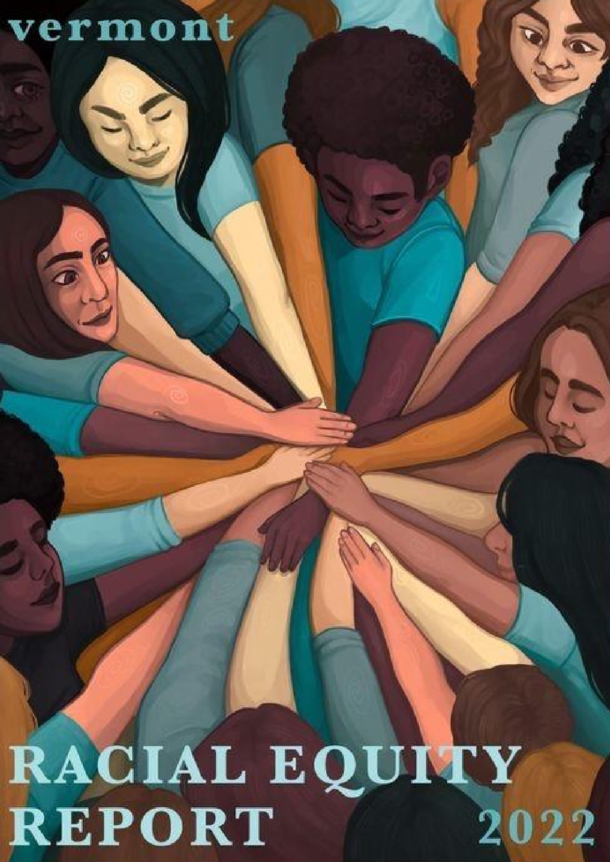VSARN (Vermont Student Anti-Racism Network) launched its Racial Equity Report at a virtual press conference on Monday, Aug. 29. VSARN is a Vermont-wide coalition of high school and college students working to combat racial inequities in the state.

The report includes recommendations to improve racial inequities in Vermont, including revising state curricula for schools to be culturally inclusive, anti-racist, and multicultural and prioritizing restorative justice practices in schools.
Monday’s event opened with comments from the report’s authors, Emily Maikoo, Addie Lentzner, and Minelle Sarfo Adu, and illustrator, Isabella Ingegneri – all of whom are Vermont high schoolers or new college students. Also present were Saudia LaMont, a candidate for the Vermont House, and Rep. Michelle Bos-Lun (D-Westminster) who congratulated the authors on their work, commenting that they were working to fill an educational gap in Vermont schools. Rep. Bos-Lun noted that the report includes recommendations that she hopes to incorporate into future legislative efforts in the Vermont House, in particular restorative justice in schools. The event concluded with questions from the audience.
Minelle Sarfo Adu of South Burlington, a freshman at Antioch University and past CVOEO/Thriving Communities intern, spoke about racial discrimination in housing – noting that BIPOC families are much less likely to be homeowners in Vermont and are disproportionately impacted by rapidly rising rents.

Report highlights
In addition to the recommendations to improve racial inequities in Vermont through changes to policing, criminal legal reform, youth justice efforts, educational curriculum, economic justice, housing equity and supports, healthcare reform, and broad trauma-informed education and anti-bias training, the report includes:
- A brief history of racism and slavery in Vermont and its impact on housing discrimination, healthcare, and criminal justice.
- The results of the authors’ survey of students at Mount Anthony Union High School, in Bennington, Vt. Key findings included:
- 79% of respondents said they dis not get a substantial education on race and racism in elementary school
- 42% of respondents had experienced microaggressions in interactions with teachers
- 50% of respondents said that is is hard to live in Vermont because of its lack of diversity
- Read the full report at the VSARN website